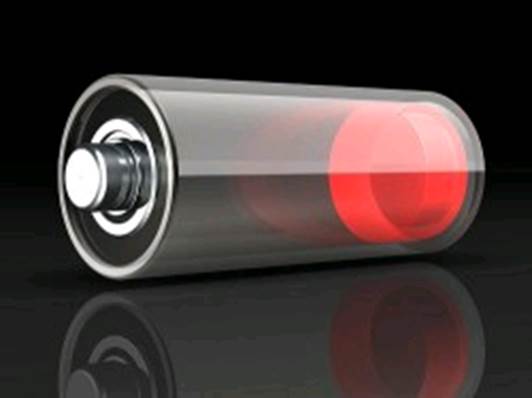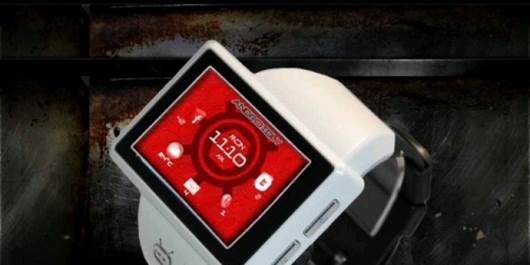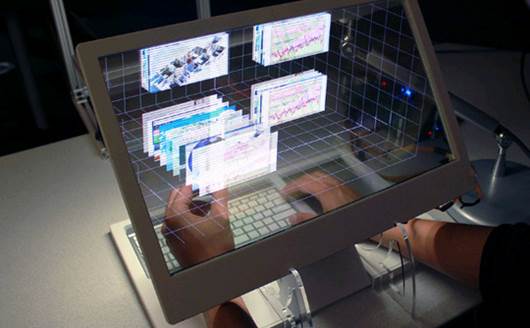Charge mobile by sending SMS
Running out on your phone’s battery? Now
all you need to do is to send an SMS to recharge it. Buffalo Grid has developed
a solar-powered cellphone charging station that gets activated by an SMS. The
system can be beneficial for people living off-grid as recharging their phone
is now an SMS away.
The company has designed the technology
particularly for rural areas in the developing parts of the world like Africa
and Asia. According to a ‘NewScientist’ report, a trial of the technology has
already been conducted in Uganda. The technology works in a way that the
battery of the cellphone derives its power from a solar panel via a technique
called maximum power point tracking (MPPT). The battery, via this unique
technique, is charged by a 60-watt solar panel.

Charge
mobile by sending SMS
Crash-proof computer
Ever imagined a computer that never
crashes? Well, you don’t need to imagine that any more. Computer scientists at
the Unicersity College London (UCL) have come up with a self-repairing,
inspired-by-nature computer that never crashes.
“This technology could find its way into
mission-critical systems that must not fail, or it could improve the overall
reliability of computers in general - which is a good thing, considering how
almost everything we interact with is governed by a digital computer,” said a
report by Extreme Tech.
Battery that recharges in 10 minutes

Battery
that recharges in 10 minutes
Say hello to the next-generation
lithium-ion battery which can be recharged within ten minutes! Researchers at
the University of Southern California (USC) Viterbi School of Engineering claim
that the new batteries hold thrice as much energy as its existing counterparts.
The new batteries could be used in anything
from cellphones to hybrid cars. The design, currently under a provisional
patent, could be commercially available within two to three years. “It’s an
exciting research. It opens the door for the design of the next-generation
lithium-ion batteries,” said Chongwu Zhou, professor at the USC Viterbi School
of Engineering, who led the team that developed the battery.
Bracelet that connects to Android
smartphone

Bracelet
that connects to Android smartphone
Technology knows no bounds! For all the
Android smartphone lovers who want to avoid carrying their huge devices in
their hands, here is a bracelet that will keep you connected to your
smartphones without the burden of carrying one.
Embrace plus allows users to set
notifications for incoming calls, text messages, Instagram, email, Twitter,
Facebook, Tumblr, Linkedln, Skype, Calendar Alerts and much more. The bracelet
can be connected to any Android smartphone running Android 2.3 and above.
India-based firm designs smallest Android
smart watch

India-based
firm designs smallest Android smart watch
Samsung belongs to Korea, HTC is located
in Taiwan, Sony is a Japan-based brand and even Micromax sources its products
from China. But amongst all these biggies, an India-based tech firm, called
Android Systems Pvt Ltd. has launched the smallest Android-based watch that
comes with smartphone like features.
The company has priced the innovative
miniature device, starting at $249. This smartwatch sports a 5cm (2-inch)
display and runs Android 2.2 aka Froyo. The watch is powered by a 416MHz
processor and 256MB RAM. It also comes with a camera, Wi-Fi and Bluetooth
support, SIM card slot, Google Play Store and other wireless modes. The watch
also has an internal storage capacity of 8 GB.
A 3D see-through computer

A
3D see-through computer
A transparent 3D computer was recently
unveiled at the Technology, Entertainment and Design (TED) 2013 conference in
California. Developed by Jinha Lee - a graduate student at MIT, the SpaceTop 3D
desktop has the potential to radically alter the way we interact with personal
technology. The device works via a combination of a transparent display and 3D
gesture detection algorithms that are placed in the input space. 3D rendering,
as per Lee, is achieved without tethering or burdening users with 3D glasses.
Nano technology to double HDD density

Nano
technology to double HDD density
HGST (formerly Hitachi Global Storage
Technologies) is leading the disk drive industry to the forefront in nanolithography
by creating and replicating minute features that will allow the doubling of
hard disk drive (HDD) density in future disk drives.
HGST Labs announced that they have combined
two innovative nanotechnologies - self-assembling molecules and Nano imprinting
- to create large areas of dense patterns of magnetic islands only 10
billionths of a meter (10 nanometers) wide. These features are only about 50
atoms wide and some 100,000 times thinner than a human hair.
Power management IC

ROHM
has developed a dedicated system power management IC (PMIC)
ROHM has developed a dedicated system power
management IC (PMIC) to support Intel's latest Atom-based platform, codenamed
Bay Trail. It is a highly integrated power management solution targeted towards
ultra-thin form factor tablet and convertible devices.
Dr Takahisa Yamaha, managing director and
head of ROHM semiconductor division, said "Our PMIC represents more than
just a successful IC design. It represents a strong collaboration with Intel's
Mobile and Communications Group that allows Intel to release a cutting-edge
tablet SoC platform. Customers will enjoy the benefit of a fully-integrated
PMIC which delivers improved battery life and higher integration."
IC for embedded computing

Here
comes the Apalis T30, the first product in the new Apalis module family by
Toradex
Here comes the Apalis T30, the first
product in the new Apalis module family by Toradex. Complementing the existing
Colibri module family, Apalis comes with a range of new features which
customers can use to develop the most advanced, robust products with minimum
overhead and risk.
Apalis module is based on NVIDIA Tegra 3
Cortex-A9 Quad Core 1.4 GHz CPU. Other features include SATA,
PCIe, USB3.0, and gigabit Ethernet; DVFS
and thermal throttling for achieving the lowest power consumption; and up to
127 GPIOs, SPI, CAN, PWM, parallel camera and other industrial interfaces.
USB 3.0-SATA3 bridge SoC

USB
3.0-SATA3 bridge SoC
Renesas Electronics has introduced its new
SuperSpeed Universal Serial Bus (USB 3.0) to Serial ATA (SATA) Revision 3
bridge SoC (system on chip, part number ^PD720231) that enables the reduction
of the total BOM significantly.
The µPD720231 enables effective
multi-gigabit per second (Gbps) data transfer between a USB 3.0 host system and
a SATA device used in widely adopted external USB hard drives and solid state
drives (SSD).
Through integration, the new |iPD720231 USB
3.0-SATA3 bridge SoC has reduced the number of components by 40 per cent
compared with the number of other commercial devices with equal functions. It
features an embedded voltage regulator and power-on reset circuit. The new
product can store firmware in SATA devices such as hard discs and SSD, and can
also omit external serial flash ROM.